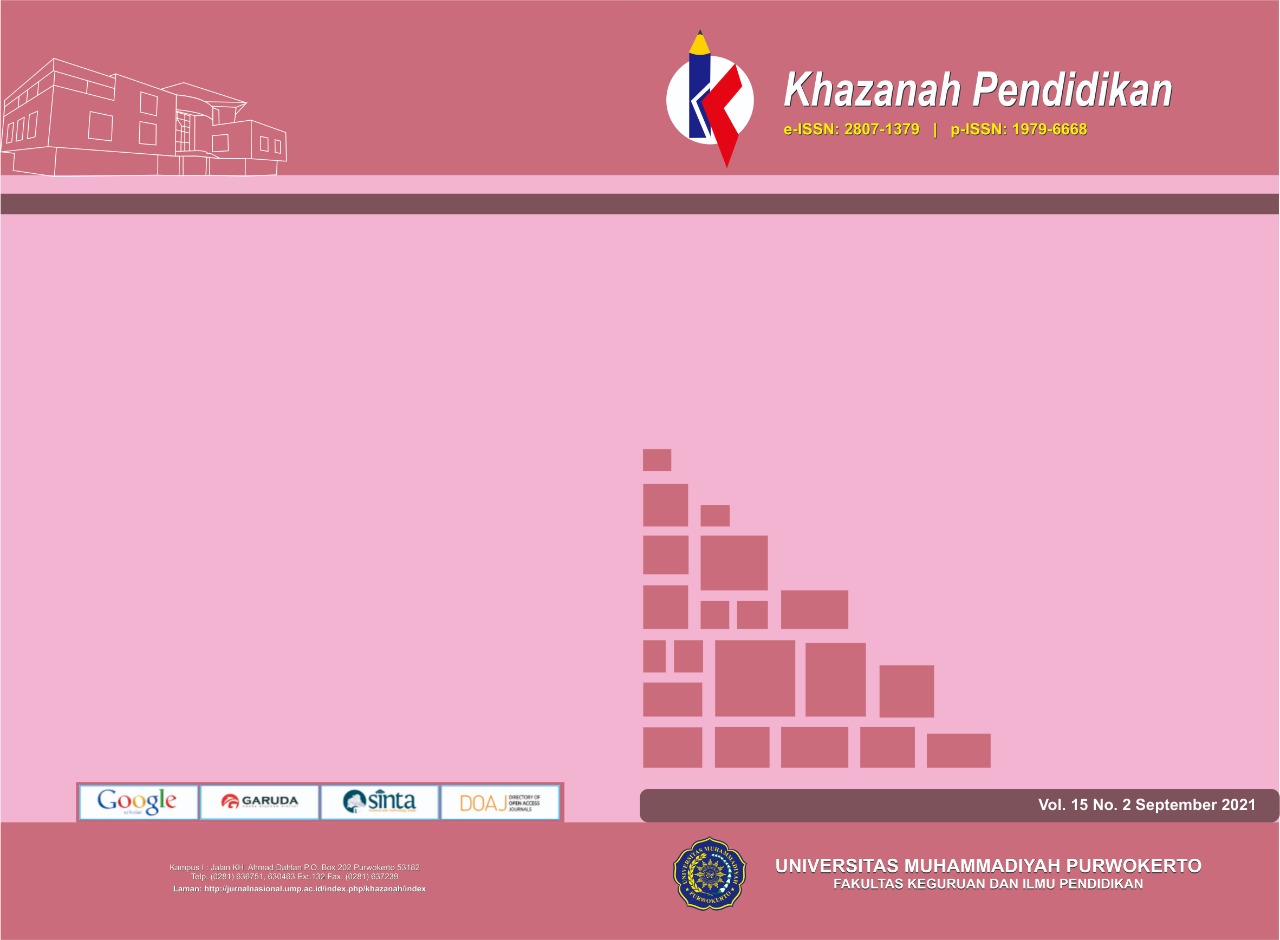E-LKS BERBASIS STEM (SCIENCE TECHNOLOGY ENGINEERING MATHEMATIC) PADA MATERI SISTEM PERNAPASAN KELAS XI SEKOLAH MENENGAH ATAS
DOI:
https://doi.org/10.30595/jkp.v15i2.10689Keywords:
Learning media, E-LKS, STEM, Respiratory systemAbstract
E-LKS is one example of media from technological developments that can improve the quality of the learning process, especially in the current era of the covid-19 pandemic due to the need for creative, innovative teachers in learning, so that online learning can increase students' interest in learning. In this study, researchers will develop an e-LKS based on STEM (Science Technology Engineering Mathematical) on respiratory system material for class XI. STEM is a learning approach that involves the application, knowledge, skills and values to solve or solve problems in the context of everyday life, or explore, investigate, and solve problems related to real life. The purpose of developing this media is to determine the feasibility of the media from material experts, media experts and find out the attractiveness of the media through questionnaire responses from students. The research method uses a 4D model. This development model is divided into four stages, namely: define, design, develop, disseminate, with material expert validation results of 78.33% with appropriate criteria, media expert validation obtained 88.88% with very feasible criteria and student response questionnaires of 80.20% with attractive media criteria, so that the media is feasible and interesting to be used as another reference that supports the learning process.
References
Meishanti, OPY. 2019. Pengaruh Pemberian Kuis Terhadap Hasil Belajar Siswa Kelas VII Di SMPN Bandarkedungmulyo Jombang. Jurnal eduscope (Online), Vol. 4, No. 01, http://ejournal.unwaha.ac.id/index.php/eduscope/article/view/380/300
Meishanti, OPY. (2020). Project Based Learning Berbasis STEM Design Thinking Process Untuk Meningkatkan Hasil Belajar Mahasiswa Pendidikan Biologi Pada Matakuliah Biologi Umum. Jurnal EDUSCOPE, Januari, 2020, Vol. 05 No. 02 di unduh dari https://ejournal.unwaha.ac.id/index.php/eduscope/article/view/822/395
Moore Keith L., Dalley Arthur F., Agur Anne M.R.. 2014. Clinically Oriented Anatomy. 7th ed. Philadelphia : Lippincott Williams & Wilkins
No, V., Problem, B., Learning, B., Untuk, P. B. L., & Keterampilan, M. (2019). Bioedu The Feasibility And Practicality Of Learner Activities Sheets ( Lkpd ) Based On Problem Based Learning ( Pbl ) To Practice Problem Solving Skills In Waste. 8(1), 63–69.
Oktafiani., TA,. 2020. Pengembangan Lembar Kerja Siswa (LKS) Berbasis Etnomatematika Untuk Meningkatkan Kemampuan Koneksi Matematis Siswa Sekolah Menengah Pertama. Skripsi. Program Studi Tadris Matematika Fakultas Tarbiyah Dan Ilmu Keguruan Institut Agama Islam Negeri Purwokerto
Prastowo,. 2014. Pengembangan Bahan Ajar Tematik, Jakarta: Kencana Prenadamedia Group
Riduwan. (2011). Belajar Mudah untuk Penelitian Guru Karyawan dan Peneliti Pemula. Bandung: Alfabeta.
Roberts, A. & D. C. (2012). Applying Stem Instructional Strategies To Design And Technology Curriculum. Technology Education in the 21st Century, Proceeding of the PATT 26 Conference. Lingkoping University Stockholm.
Safriandono, A. N., & Charis, M. (2014). Rancang Bangun E-Lembar Kerja Siswa sebagai Media Pembelajaran yang Praktis, Fleksibel dan Edukatif Berbasis Web. Jurnal Teknik-UNISFAT, 10(1), 25–35.
Sugiyono. (2018). Metode Penelitian Kuantitatif. Penerbit: Alfabeta.
Suparno, P. (2013). Miskonsepsi dan Perubahan Konsep dalam Pendidikan Fisika. Grasindo.
Utami, T. N. (2018). Pengembangan Modul Matematika dengan Pendekatan STEM (Science, Technology, Engineering, And Mathematic) pada Materi Segiempat dan Segitiga untuk Kelas VII Smp. Universitas Islam Negeri Raden Intan.
Downloads
Published
Issue
Section
License
Authors who publish with this journal agree to the following terms:
Authors retain copyright and grant the journal right of first publication with the work simultaneously licensed under a Creative Commons Attribution License that allows others to share the work with an acknowledgement of the work's authorship and initial publication in this journal.
Authors are able to enter into separate, additional contractual arrangements for the non-exclusive distribution of the journal's published version of the work (e.g., post it to an institutional repository or publish it in a book), with an acknowledgement of its initial publication in this journal.
Authors are permitted and encouraged to post their work online (e.g., in institutional repositories or on their website) prior to and during the submission process, as it can lead to productive exchanges, as well as earlier and greater citation of published work (See The Effect of Open Access).

Khazanah Pendidikan is licensed under a Creative Commons Attribution 4.0 International License.


